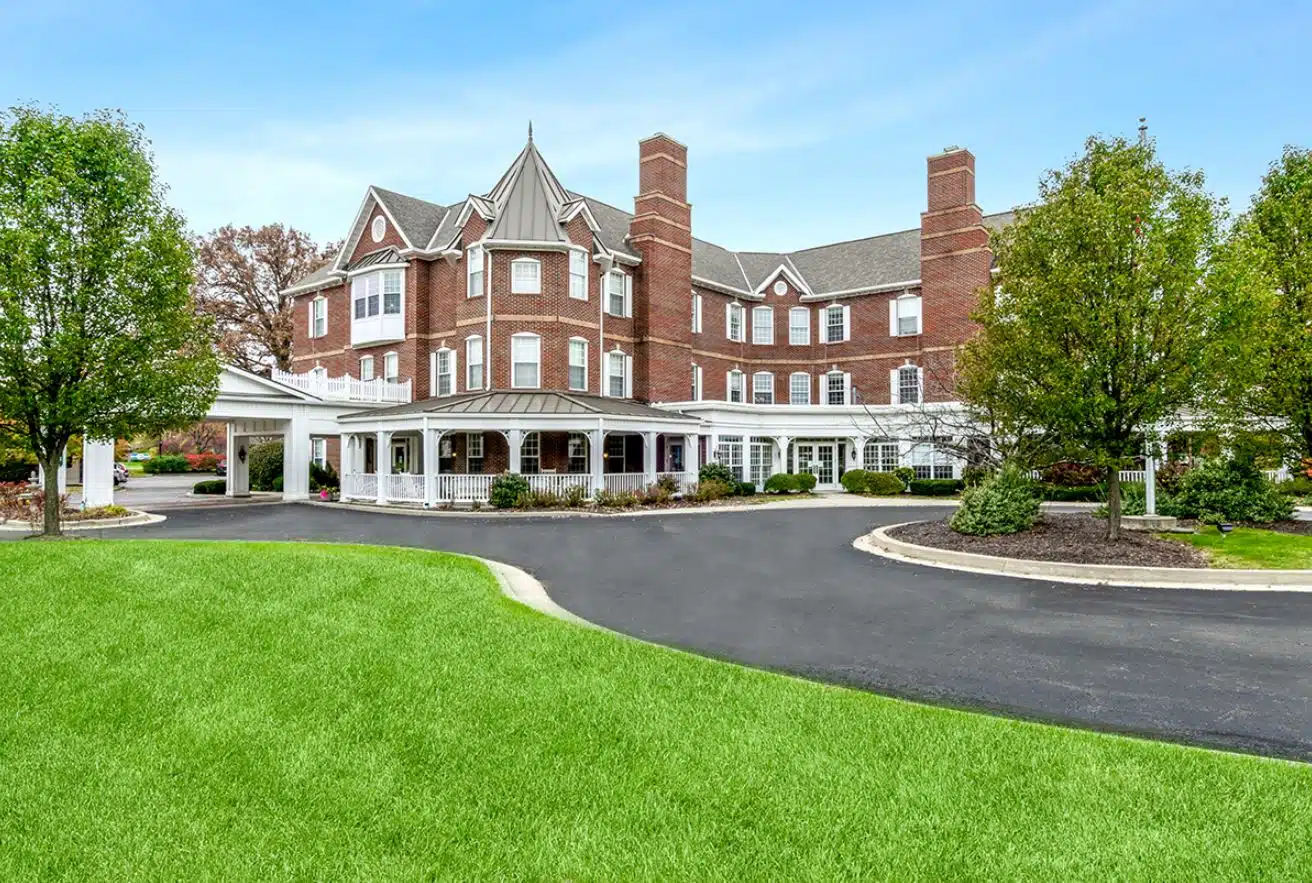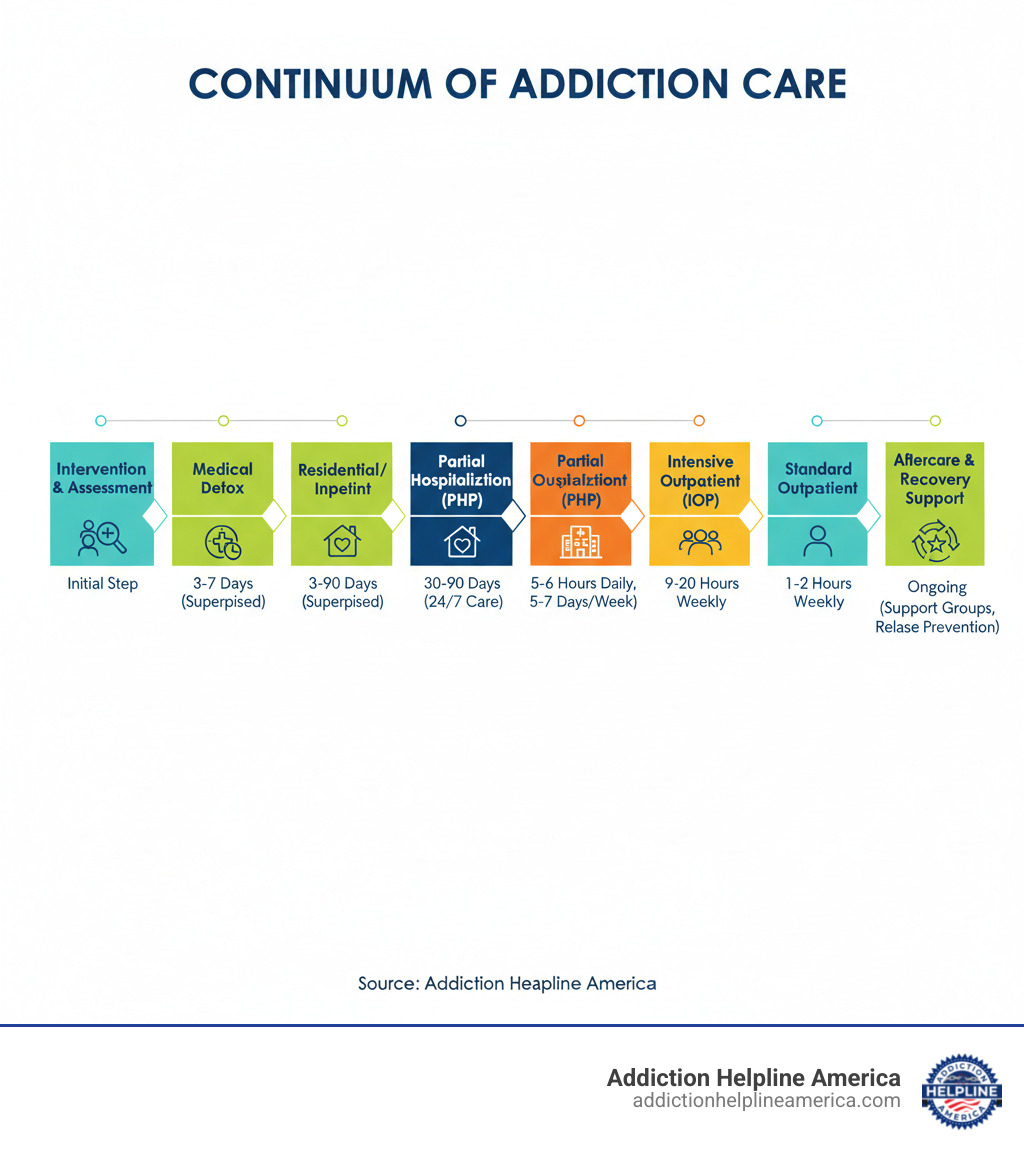
Why Finding the Right Rehab Center Can Save Your Life
In 2020, 40.3 million people aged 12 or older had a substance use disorder, but only a fraction received formal treatment. This gap highlights a critical need for accessible care. The recovery journey is challenging, but finding the right help makes it possible.
To find rehab centers that meet your specific needs, start with these essential resources:
- FindTreatment.gov: SAMHSA’s confidential directory with filters for location, insurance, and treatment type.
- National Helpline: Call 1-800-662-HELP (4357) for free, 24/7 treatment referrals.
- 988 Suicide & Crisis Lifeline: Immediate support for mental health emergencies.
- State Substance Use Agencies: Local resources for state-funded and low-cost programs.
- Addiction Helpline America: Personalized guidance to match you with appropriate treatment options.
Understanding your options is the first step. The treatment landscape—from detox to outpatient care—can feel overwhelming. This guide will empower you by explaining the types of centers, how to evaluate them, and how to handle practical concerns like cost. You don’t have to do this alone.
Addiction Helpline America has helped thousands find rehab centers that fit their unique needs. We provide confidential support and expert guidance to connect you with the right resources and help you understand your payment options.
Find rehab centers further reading:
Understanding the Landscape of Addiction Treatment
When you’re ready to find rehab centers, you’re taking a brave step. The world of addiction treatment can seem complex, with different facilities and levels of care designed for various stages of recovery. Your journey is unique, and what works for one person may not work for another. Many people also struggle with co-occurring mental health issues, which makes finding the right integrated care essential.
Recognizing you need help is the first step. Let’s explore the options available.
Types of Treatment Centers
Understanding the different types of facilities helps you find rehab centers that fit your situation.
- Substance abuse facilities focus on overcoming drug and alcohol addiction through detox, therapy, and recovery support.
- Mental health centers treat conditions like depression and anxiety. While not solely for addiction, they are a key resource for mental wellness.
- Dual diagnosis centers are crucial for treating both addiction and mental health conditions simultaneously, which offers the best chance for lasting recovery.
- Hospital inpatient programs provide the highest level of 24/7 medical care for severe addiction or complex health needs.
The Continuum of Care: From Inpatient to Outpatient
Recovery often progresses through stages, from intensive care to more independent living. This is the continuum of care.
- Medical detox is the first step for many, providing supervised withdrawal management to ensure safety and comfort, especially for substances like alcohol or benzodiazepines.
- Residential or inpatient treatment involves living at a facility for immersive, 24/7 care away from daily triggers. Learn more at our Treatment: Residential page.
- Partial Hospitalization Programs (PHP), or day treatment, offer intensive therapy for several hours a day while you live at home.
- Intensive Outpatient Programs (IOP) provide structured therapy for nine or more hours weekly, allowing you to maintain work or family commitments.
- Standard outpatient treatment is the most flexible option, with a few hours of counseling per week to support ongoing recovery.
| Feature | Inpatient/Residential | Outpatient (PHP, IOP, Standard) |
|---|---|---|
| Duration | Typically 30-90 days, sometimes longer | Varies greatly; PHP (weeks-months), IOP (months), Standard (ongoing) |
| Intensity | High; 24/7 structured care, constant supervision | Moderate to low; part-time structured therapy |
| Living Situation | Live at the facility | Live at home or in sober living |
| Cost | Generally higher due to accommodation and 24/7 care | Generally lower, as it doesn’t include living expenses |
Specialized Treatment Programs
Many facilities offer programs custom to specific groups and needs.
- Luxury rehab centers provide high-end amenities and privacy in comfortable, resort-like settings.
- Teen treatment programs address the unique developmental and social challenges adolescents face.
- Telehealth and online counseling offer flexible and accessible treatment from home.
- Veterans programs address service-related issues like PTSD and trauma. Connect with the Veterans Crisis Line for immediate support.
- LGBTQ+ affirming care provides a safe, inclusive environment to address addiction and societal pressures.
- Programs for pregnant and postpartum women offer integrated care for the health of both mother and child, a critical need highlighted by the reality of when A Baby is Born Addicted to Drugs.
What Can Rehab Centers Treat?
Rehabs address a wide range of substance use and mental health disorders.
- Alcoholism: Treatment often begins with medically supervised detox, as withdrawal can be dangerous. See our Treatment: Alcoholism guide for more.
- Opioid addiction: Care often involves medication-assisted treatment (MAT) combined with therapy. Our Heroin and Fentanyl Abuse Helpline offers dedicated support.
- Benzodiazepine addiction: Requires careful medical detox due to severe withdrawal risks. Learn more about Addiction Treatment: Xanax Treatment.
- Stimulant abuse: Treatment focuses on behavioral therapies to develop coping strategies and understand triggers.
- Co-occurring disorders: Effective treatment must address both addiction and mental health conditions like depression or anxiety simultaneously. Our Interventions Anxiety Depression Guide explores this link.
Your Guide to Find Rehab Centers and What Makes a “Top 10” Facility
When you start to find rehab centers, the number of options can be daunting. A “top” facility isn’t about luxury; it’s about effective, personalized care that matches your unique needs and goals.
How to find rehab centers near you or in a specific location
Location is a key decision. Some people thrive near their home support system, while others need distance from triggers. Addiction Helpline America offers personalized guidance to connect you with facilities in your desired location, whether it’s in Florida, Texas, or any other state. We have extensive information on programs nationwide, including options for Rehab California Inpatient Treatment.
Government resources like FindTreatment.gov and the SAMHSA National Helpline (1-800-662-HELP) are also valuable, offering confidential searches and referrals.
What to look for when you find rehab centers
Once you have a list of potential centers, evaluate them based on these key factors:
- Licensing and Accreditation: Ensure the facility is licensed by the state. Look for accreditation from The Joint Commission or CARF, which signals high standards of care and safety.
- Evidence-Based Treatment: Quality programs use scientifically proven therapies like Cognitive Behavioral Therapy (CBT) and Dialectical Behavior Therapy (DBT). Our guide to Evidence-Based Rehab explains why these methods work.
- Staff Qualifications and Ratios: Ask about the credentials and experience of the clinical team. A lower staff-to-patient ratio often means more personalized attention.
- Individualized Treatment Plans: Avoid one-size-fits-all programs. A good facility will create a customized plan based on a thorough assessment of your specific needs.
- Aftercare Planning: Recovery continues after treatment. Strong programs begin planning for your aftercare from day one, arranging ongoing therapy, support groups, and sober living options. Comprehensive aftercare is linked to better Addiction Treatment Success Rates.
How to Help Someone Else Find Treatment
Watching a loved one struggle is painful, but you can play a vital role in their recovery.
- Staging an intervention: A professionally guided intervention can help break through denial with compassion and clear boundaries, often leading directly to treatment.
- Offering support without enabling: Encourage treatment and healthy choices while setting firm boundaries. Avoid actions that shield them from the consequences of their addiction.
- Providing resources: Gather information on treatment centers and payment options. Having concrete options shows you’re serious about helping.
- Using effective communication: Use “I” statements to express your feelings without blame. Approach conversations with compassion when they are sober.
- Finding family support: Groups like Al-Anon and Nar-Anon provide support and coping strategies for families, reminding you that you’re not alone.
Navigating the Practical Steps: From Cost to Your First Day
After deciding to seek treatment, practical questions about cost and preparation are normal. Don’t let these concerns stop you. We can help you steer these steps so you can focus on your recovery.
Understanding the Cost of Rehab and Payment Options
The cost of rehab is a common barrier, but treatment is more accessible than many believe. There are numerous ways to manage the expense.
- Private Insurance: The Affordable Care Act (ACA) expanded coverage for addiction treatment. Many private plans cover detox, inpatient, and outpatient services. We can help you verify your benefits to understand your coverage.
- Medicaid or Medicare: These government-funded programs often cover addiction treatment services for eligible individuals.
- State-Funded Programs: For those with limited income or insurance, state-funded programs provide essential care at low or no cost. You can find information on state-funded rehab through government resources or by contacting us.
- Sliding Scale Fees: Many facilities adjust the cost of treatment based on your income and ability to pay.
- Financing Options: Some centers offer payment plans or connect you with third-party healthcare loans to make treatment affordable.
Don’t let cost deter you. Our team at Addiction Helpline America can help you explore all financial avenues.
Preparing for Your Recovery Journey
Once you’ve chosen a center, a little preparation can ease the transition.
- What to Pack: Most facilities provide a list. Generally, bring comfortable clothes, non-alcoholic toiletries, and a few personal comfort items like a journal or photos. Electronics may be restricted to help you focus.
- What to Leave Behind: Valuables, large amounts of cash, weapons, and any products containing alcohol are prohibited. Check with the facility about their specific policies.
- Arranging Obligations: The Family and Medical Leave Act (FMLA) may protect your job while you’re in treatment. Arrange for childcare and other family responsibilities in advance so you can focus on healing.
- Medical and Psychological Assessment: Before treatment begins, you’ll undergo a comprehensive evaluation. This helps the clinical team understand your history and create an effective, personalized treatment plan. Be prepared to discuss your substance use, health, and family history honestly.
Our guide, What to Expect in Rehab, provides a detailed overview of the process to help ease any anxiety.
Building a Foundation for Lasting Recovery
When you find rehab centers, it’s important to know that treatment is the foundation, but lasting recovery is built day by day with ongoing support. You won’t be doing this alone; a whole ecosystem of support is available to help you thrive.
The Role of Therapists and Psychiatrists
Your treatment team helps you rebuild your life. Therapists and psychiatrists are central to this process.
- Individual therapy is a private space to explore the root causes of addiction and develop coping skills using proven methods like Cognitive Behavioral Therapy (CBT) or Dialectical Behavior Therapy (DBT).
- Group therapy provides the powerful realization that you’re not alone. Sharing with others who understand your struggle builds connection and accountability.
- Family counseling helps repair relationships, improve communication, and teaches your loved ones how to support your recovery effectively.
- Psychiatrists are medical doctors who can prescribe and manage medications for withdrawal, cravings, or co-occurring mental health conditions like depression and anxiety. Their role is crucial in dual diagnosis treatment, ensuring both addiction and mental health are addressed.
Resources for Specific Populations
Effective treatment honors your unique experiences. Look for programs that understand your background.
- Veterans face service-related trauma and PTSD. Specialized programs are staffed by professionals who understand military culture. The Veterans Crisis Line offers immediate, 24/7 support.
- Pregnant and postpartum women require integrated care that addresses addiction, prenatal health, and parenting support for the well-being of both mother and child.
- Individuals with co-occurring disorders need integrated treatment that addresses both substance use and mental health simultaneously, as they are deeply intertwined.
- Culturally competent care respects your values and background, improving outcomes by allowing you to be fully yourself while healing. This includes LGBTQ+ affirming care and services in different languages.
Life After Rehab: Ongoing Support
Successful recovery involves staying connected to support long after leaving treatment.
- Addiction Recovery Support Groups like Alcoholics Anonymous (AA), Narcotics Anonymous (NA), and non-12-step alternatives like SMART Recovery provide essential fellowship and accountability.
- Sober living homes offer a structured, substance-free environment that bridges the gap between rehab and independent living. Our Sober Living Costa Mesa Guide explains how they work.
- Relapse Prevention Strategies are a roadmap for navigating challenges. You’ll learn to identify triggers, develop healthy coping skills, and create a plan for handling cravings.
- Alumni programs keep you connected to the treatment community through events, workshops, and a supportive peer network.
Addiction Helpline America is here for the long haul, connecting you to aftercare resources whenever you need them.
Frequently Asked Questions about Finding a Rehab Center
As you find rehab centers, it’s natural to have questions. Here are straightforward answers to some of the most common ones.
How long does rehab last?
There’s no one-size-fits-all answer. The ideal length depends on your specific needs, the severity of the addiction, and your progress. Common durations include:
- 30-day programs: A good starting point for stabilization and introducing core recovery concepts.
- 60-day programs: Allow more time to address underlying issues and practice new coping skills.
- 90-day programs: Often recommended by experts, as research shows longer stays lead to better long-term outcomes. This timeframe allows for deeper change.
- Long-term programs: For those with complex needs, programs extending beyond 90 days provide sustained support for a gradual return to daily life.
The right duration is determined by clinical recommendations, not just a calendar.
Is treatment confidential?
Yes, absolutely. Your privacy is protected by federal law, primarily the Health Insurance Portability and Accountability Act (HIPAA). This means a treatment facility cannot disclose your information—including your presence there—to anyone without your written consent. Exceptions are rare and typically involve an immediate threat of harm or a court order.
Calls to helplines and searches on resources like FindTreatment.gov are also confidential and anonymous. In group therapy, all participants agree to respect each other’s privacy, creating a safe space for honesty. At Addiction Helpline America, every conversation is private and secure.
What happens if I relapse?
First, relapse is not a failure. It is a common part of the recovery process for many. Addiction is a chronic disease, and setbacks can happen. What matters is how you respond.
A relapse is a sign that your recovery plan needs adjustment. It provides valuable information about your triggers and where you need more support. The most important step is to reach out for help immediately—call your therapist, sponsor, or a helpline. Don’t let shame keep you silent.
From there, you and your support team will re-assess your needs. This might mean more frequent therapy, attending more support meetings, or a temporary return to a higher level of care to regain stability. Many people in long-term recovery have experienced relapse; their success came from their persistence in getting back on track.
Conclusion
If you’ve read this guide, you are considering a courageous step toward a better future for yourself or someone you care about. We want you to know that recovery is possible. Millions of people are living proof that it’s possible to break free from addiction and build a new life filled with hope and purpose.
We’ve covered the types of treatment, how to evaluate centers, and how to handle practical steps like cost. The most important takeaway is that you don’t have to steer this complex landscape alone.
At Addiction Helpline America, we specialize in helping people just like you. We offer free, confidential, and personalized guidance to help you find rehab centers that match your unique needs. Our team has connected thousands of people to our nationwide network of treatment providers, helping with everything from immediate detox to understanding insurance.
Picking up the phone is often the hardest part, but it’s the single action that can change everything. Let us help you take that crucial next step.
Find the right rehab center for you today
You deserve a life of recovery. It starts with one brave decision.
Our helpline is 100%
free & confidential
If you or someone you care about is struggling with drug or alcohol addiction, we can help you explore your recovery options. Don’t face this challenge alone—seek support from us.
Programs
Resources
Will my insurance
cover addiction
treatment?
We're ready to help
Find the best
drug or alcohol treatment
center
Are you or a loved one struggling with addiction? Call today to speak to a treatment expert.

















